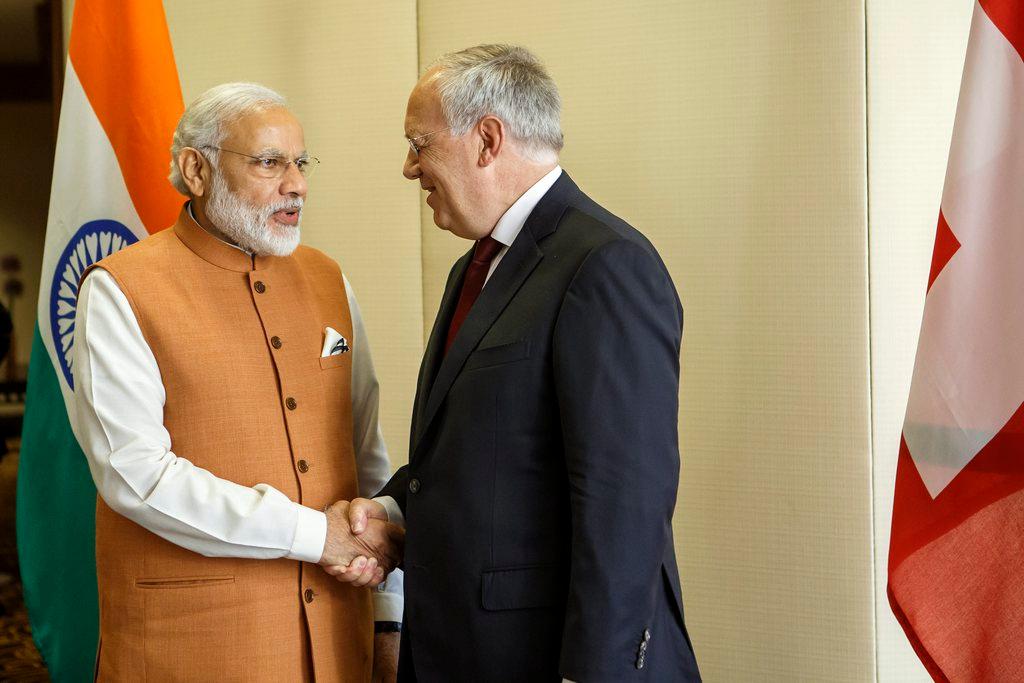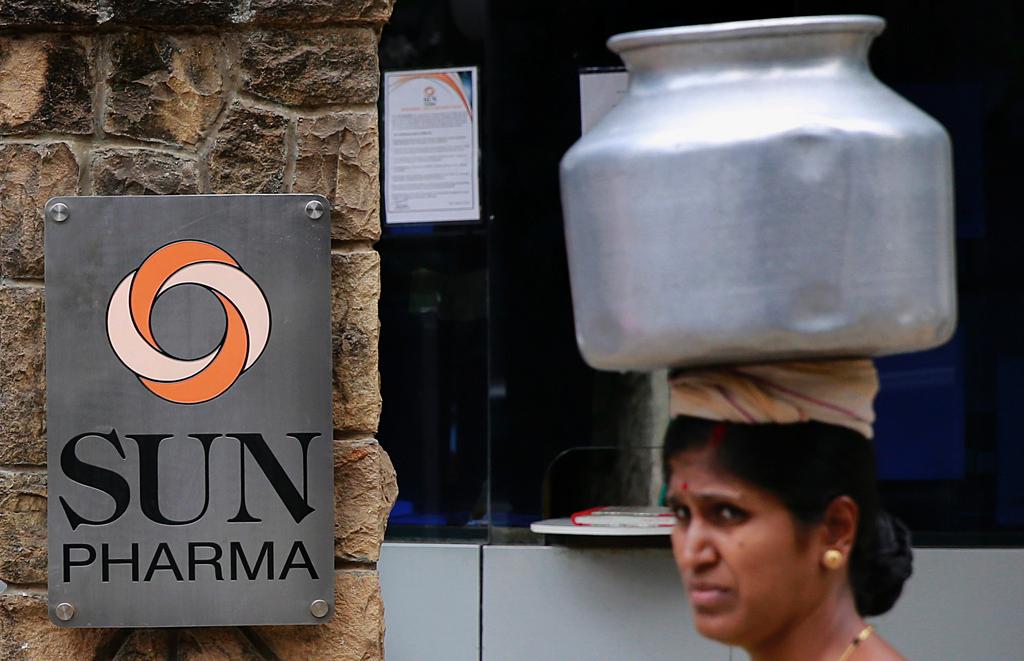Modi’s visit could jumpstart free-trade deal

Switzerland and India could resume talks on a free trade agreement that has been stuck in limbo for almost ten years. Swiss President Johann Schneider-Ammann raised the issue on Monday with Indian Prime Minister Narendra Modi during the Indian leader’s Swiss visit.
“We have a very good basis” for resuming the free-trade talks in the next days and months, said Schneider-Ammann at the start of a round table meeting with Modi and around 20 representatives of the Swiss economy.
The trade agreement between India and EFTA countries (Switzerland, Norway, Liechtenstein and Iceland) has been on the table since 2008. Negotiations with the Indian government came to a halt in 2014 due to general elections in India. However, in spite of the business-friendly new government led by Modi, the talks between the two countries have not progressed significantly.
Now it appears that the two countries are ready to give the deal another serious shot. Marie-Gabrielle Ineichen-Fleisch, director of the State Secretariat for Economic Affairs (SECO), will be travelling to New Delhi at the end of the week to rekindle the negotiations. Her visit “has to be” the impetus to revive discussions on free trade, said Schneider-Ammann.
Another Swiss heavyweight, Jacques de Watteville, who is chief of the State Secretariat for International Financial Matters, will also be visiting India next week.
India's economy is growing rapidly. The coming together of our development needs & Swiss strengths can be beneficial https://t.co/RrkR67ARD0External link
— Narendra Modi (@narendramodi) June 6, 2016External link
Patent problem
In May 2015, Schneider-Ammann, in his capacity as the economics minister, visited India with the objective of getting the free-trade negotiations moving. But the lingering roadblock of intellectual property (IP), especially with regard to patents held by Swiss pharmaceutical companies, continues to hamper progress.
Speaking to industry leaders at an event organised by the Federation of Indian Chambers of Commerce, Amman stressed that “without an assurance of a strong IP law, companies would not have the incentive to innovate and invest in India”.
In April 2015, Ineichen-Fleisch also confirmed that the Swiss pharmaceutical sector was still unhappy with the text of the deal, specifically on India’s interpretation of the World Trade Organization’s (WTO) rules on intellectual property.
For more than three decades, India refused to recognise pharmaceutical patents, allowing domestic firms to copy medicines so they could be sold more cheaply. However, after the country joined the WTO in 1995, it had to change its patent policy. But the patent law it launched in 2005 denies “evergreening” – making minor alterations to existing drugs to secure a new patent.
The country’s patent system also has a provision for “compulsory licensing” under which the government can force a firm to license a patented drug to a generic company under a WTO pact. Hence, the government has the liberty to interpret patent law on a case-by-case basis to enable “access to lifesaving medicines” for those who would not be able to get access to such medications otherwise.
These provisions, as well as a lack of consistency in court decisions involving Swiss pharma giants and Indian generic drug manufacturers, have prevented the free-trade deal from coming to fruition.
Reducing uncertainity
In 2013, Swiss pharma firm Novartis lost a seven-year battle to protect the patent of its cancer drug Glivec in India’s Supreme Court. The court decided it was not a novel medicine but an amended version of an existing compound. The decision sent shock waves through Switzerland, as well as other countries with big pharma sectors such as UK, US and Germany.
However, in January 2015, Novartis won a decision in Delhi High Court against Indian pharma company Cipla. The court barred Cipla from making or selling a cheaper copy of the Novartis’ respiratory drug Onbrez, citing infringement of patents held by the Swiss company. This suggests a softening of the default Indian stance of offering only a “limited patent protection” for foreign drug firms’ products.
The Indian government also constituted a think tank on Intellectual Property Rights (IPR) which helped draft the country’s first National IPR policy that was released in May of this year. One of the recommendations was the creation of specialised commercial courts to resolve IPR disputes, as well as additional training of judges. This should go some way in reassuring Swiss pharma firms that India is getting serious about removing uncertainty in the interpretation of intellectual property by Indian courts.
Tax evasion
After talks in Geneva with Schneider-Ammann and round-table discussions with Swiss businessmen, Modi said the two countries had agreed to prioritise combating tax dodgers who stash money in Swiss bank accounts to avoid Indian taxes and “black money” (income illegally obtained or not declared for tax purposes).
“We discussed the need for an early and expeditious exchange of information to bring to justice the tax offenders. An early start to negotiations on the Agreement on Automatic Exchange of Information would be important in this respect,” Modi said, referring to a portal supported by the Organisation for Economic Co-operation and Development (OECD).
Modi promised in his 2014 election campaign to recover billions of dollars sent to tax havens abroad to avoid income tax, now about 30% in India.
Schneider-Ammann said no figure had been put on the amount of black money to be recovered. Talks would begin later this month, he said.

In compliance with the JTI standards
More: SWI swissinfo.ch certified by the Journalism Trust Initiative











You can find an overview of ongoing debates with our journalists here . Please join us!
If you want to start a conversation about a topic raised in this article or want to report factual errors, email us at english@swissinfo.ch.